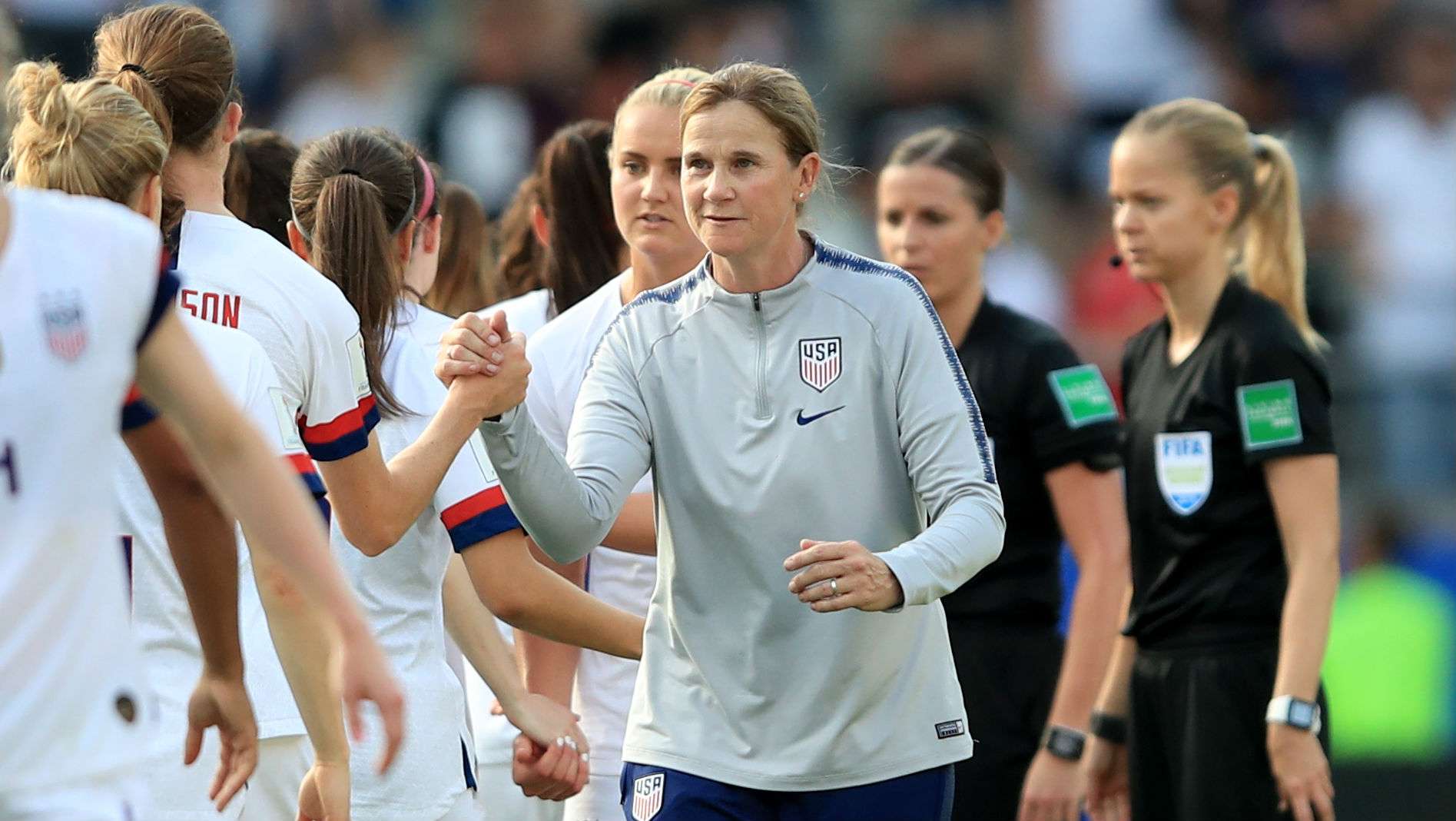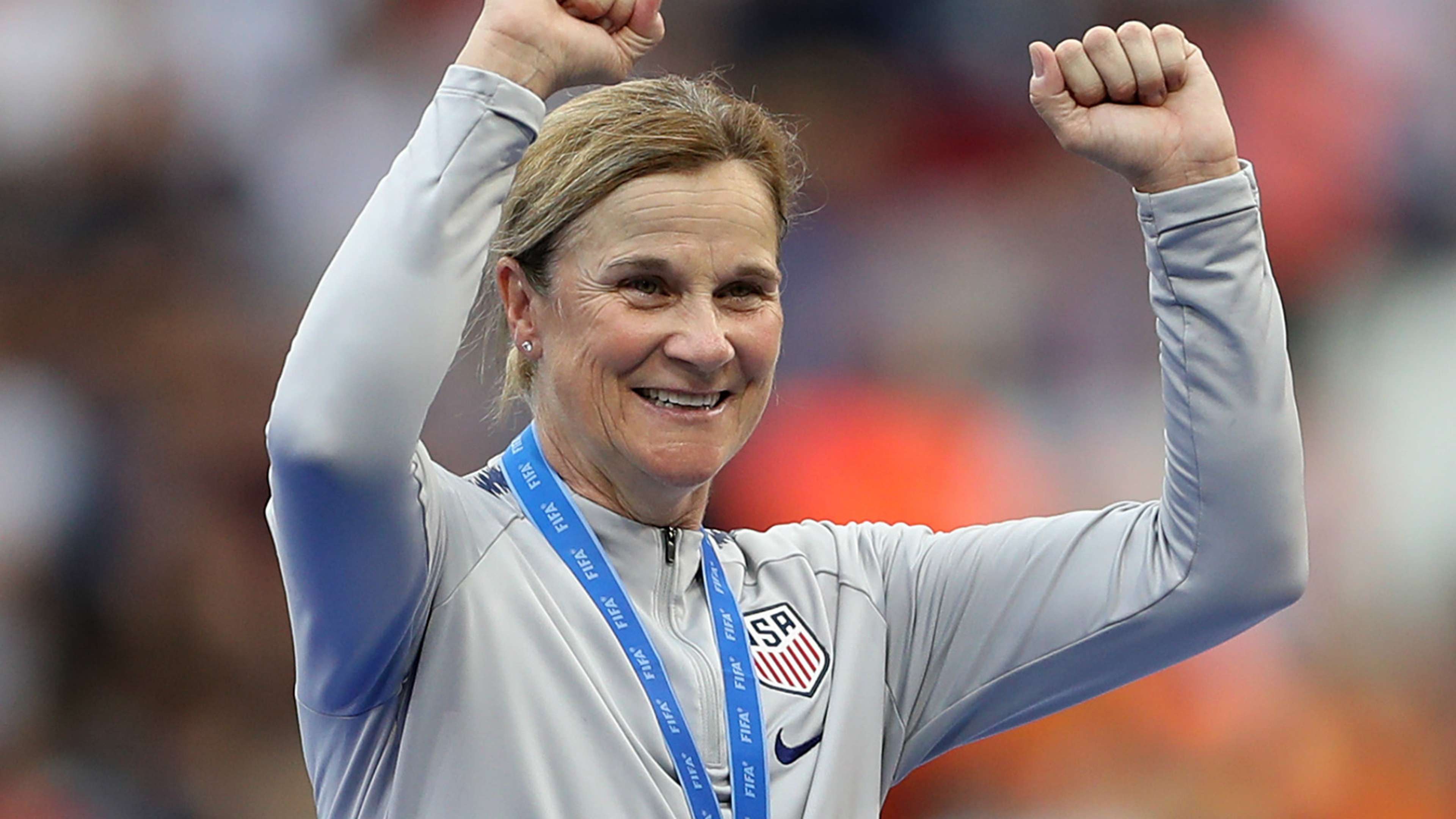For the coach of a team full of cocky, swaggering, outspoken players, Jill Ellis was decidedly none of those things.
The perfect example of this came right after Ellis had led the U.S. women’s national team to a second consecutive World Cup this summer, defeating the Netherlands 2-0 in the final.
After a tournament in which her methods, tactics, and even her mental fortitude were heavily questioned, Ellis had the perfect chance to clap back at her critics after once again leading the USWNT to their ultimate goal.
Unsurprisingly, she did not.
“I don’t need to talk about critics,” Ellis said that July afternoon in Lyon. “I don’t really care.”
That moment encapsulates Ellis, a student of the game who never had interest in the spotlight that has so clearly attracted some of her team’s best players during her five-year spell in charge.
Ellis, who will coach her final game with the USWNT on Sunday, will leave a legacy that will be difficult for any replacement to match: two World Cup titles and an overall record of 106 wins in 130 games, the most victories of any USWNT head coach.
Her success came largely because her team came to respect, if not exactly love her. That meant that while the USWNT was a proverbial well-oiled machine when things were good, Ellis also became the target of an attempted mutiny in 2017 after an extended rough patch.
Between her two World Cup triumphs, Ellis oversaw an historic failure for the USWNT. At the 2016 Olympics the U.S. fell to Sweden in the quarterfinals, becoming the first American women’s team to fail to medal.
That setback was followed by a period of heavy experimentation with players and formations, one that led to a host of ugly results and performances. By the summer of 2017, many players had had enough.
Several veteran players approached then-U.S. Soccer president Sunil Gulati and demanded that Ellis change her ways or be fired. Gulati stood firm and backed Ellis, as did his successor Carlos Cordeiro.
“I knew that after 2016 we had to deconstruct this and reconstruct it,” Ellis said. “That was the plan that I shared with my bosses and they bought into it.”
Ultimately, Ellis found a winning formula and took her team beyond those dark days and back to their perch atop the world hierarchy. But signs of dissension were never hard to find.

Ali Krieger was called back to the USWNT this spring after a two-year absence and Megan Rapinoe wasn’t shy in expressing her displeasure at her coach’s decision to leave the right back out for so long.
“I think she’s been good enough to be here all along but that’s not my choice,” Rapinoe said.
Meanwhile, Carli Lloyd made no secret that she was upset with Ellis choosing to leave her on the bench, while Hope Solo said Ellis “cracks under the pressure ” in the days leading up to the World Cup.
Inside this cauldron-like atmosphere, Ellis made her greatest traits shine through. Her command of the locker room and ability to instill a sense of collectivity allowed the USWNT to get over any personal gripes or outside distractions to focus, singularly and successfully, on lifting the trophy in France.
To the outside world, Ellis was understated. She never forcefully opined on any of the myriad of controversies that followed her team. But behind closed doors, she made herself heard.
“What I always say is people out there know one-tenth of what we do,” Ellis said after the World Cup final.
Still, despite all of her on-field success, it was always difficult to find USWNT players willing to wax poetic about their manager. A typical Ellis compliment would be focused on the team’s accomplishments under her command rather than an expression of personal adulation.
For Ellis, though, that was enough. The English-born coach always preferred to let her team’s performances do the talking. After five years in charge and with her legacy secure, Ellis has earned the right to step even further away from the spotlight.
